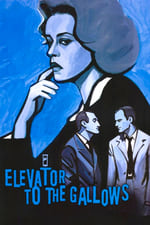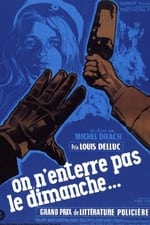Informations personnelles
Célèbre pour Son
Apparitions connues 7
Genre Homme
Date de naissance 9 janvier 1914
Date de décès 26 janvier 1985 (71 ans)
Lieu de naissance Pittsburgh, Pennsylvania, USA
Alias
- -
Score de contenu
100
Superbe ! Cette fiche semble complète !
Connectez-vous afin de
signaler un problème.
Biographie
Kenneth Clarke Spearman (January 9, 1914 – January 26, 1985), nicknamed Klook, was an American jazz drummer and bandleader. A major innovator of the bebop style of drumming, he pioneered the use of the ride cymbal to keep time rather than the hi-hat, along with the use of the bass drum for irregular accents ("dropping bombs").
Born in Pittsburgh, Pennsylvania, he was orphaned at the age of about five and began playing the drums when he was eight or nine on the urging of a teacher at his orphanage. Turning professional in 1931 at the age of seventeen, he moved to New York City in 1935 when he began to establish his drumming style and reputation. As the house drummer at Minton's Playhouse in the early 1940s, he participated in the after-hours jams that led to the birth of bebop. After military service in the US and Europe between 1943 and 1946, he returned to New York, but from 1948 to 1951 he was mostly based in Paris. He stayed in New York between 1951 and 1956, performing with the Modern Jazz Quartet and playing on early Miles Davis recordings. He then moved permanently to Paris, where he performed and recorded with European and visiting American musicians and co-led the Kenny Clarke/Francy Boland Big Band between 1961 and 1972. He continued to perform and record until the month before he died of a heart attack in January 1985.
Clarke was born in Pittsburgh, Pennsylvania on January 9, 1914 as the youngest of two sons, to Martha Grace Scott, a pianist from Pittsburgh, and Charles Spearman, a trombonist from Waycross, Georgia. The family home was on Wylie Avenue in the Lower Hill District of Pittsburgh. Clarke's father left the household to start a new family in Yakima, Washington, and his mother, who began a relationship with a Baptist preacher shortly afterwards, died suddenly in her late twenties when Clarke was about five, leaving him an orphan. He and his brother were placed in the Coleman Industrial Home for Negro Boys. He played in the orphanage's marching band on the snare drum, which he had taken up on the urging of a teacher at about age eight or nine, after trying a few brass instruments. When he was young he also played the piano, on which his mother had taught him to play simple tunes, along with the pump organ at the parish church, for which he played hymns and composed pieces that were introduced there. At the age of eleven or twelve, he and his brother resumed living with his stepfather, who did not look favorably upon music or associating with those involved with it. He dropped out of Herron Hill Junior High School at the age of fifteen to become a professional musician. Around the same time, his stepfather threw Clarke and his brother out of his house after an argument, and Clarke was placed without his brother in a foster home, where he lived for about a year until his sixteenth birthday. ...
Source: Article "Kenny Clarke" from Wikipedia in English, licensed under CC-BY-SA 3.0.
Kenneth Clarke Spearman (January 9, 1914 – January 26, 1985), nicknamed Klook, was an American jazz drummer and bandleader. A major innovator of the bebop style of drumming, he pioneered the use of the ride cymbal to keep time rather than the hi-hat, along with the use of the bass drum for irregular accents ("dropping bombs").
Born in Pittsburgh, Pennsylvania, he was orphaned at the age of about five and began playing the drums when he was eight or nine on the urging of a teacher at his orphanage. Turning professional in 1931 at the age of seventeen, he moved to New York City in 1935 when he began to establish his drumming style and reputation. As the house drummer at Minton's Playhouse in the early 1940s, he participated in the after-hours jams that led to the birth of bebop. After military service in the US and Europe between 1943 and 1946, he returned to New York, but from 1948 to 1951 he was mostly based in Paris. He stayed in New York between 1951 and 1956, performing with the Modern Jazz Quartet and playing on early Miles Davis recordings. He then moved permanently to Paris, where he performed and recorded with European and visiting American musicians and co-led the Kenny Clarke/Francy Boland Big Band between 1961 and 1972. He continued to perform and record until the month before he died of a heart attack in January 1985.
Clarke was born in Pittsburgh, Pennsylvania on January 9, 1914 as the youngest of two sons, to Martha Grace Scott, a pianist from Pittsburgh, and Charles Spearman, a trombonist from Waycross, Georgia. The family home was on Wylie Avenue in the Lower Hill District of Pittsburgh. Clarke's father left the household to start a new family in Yakima, Washington, and his mother, who began a relationship with a Baptist preacher shortly afterwards, died suddenly in her late twenties when Clarke was about five, leaving him an orphan. He and his brother were placed in the Coleman Industrial Home for Negro Boys. He played in the orphanage's marching band on the snare drum, which he had taken up on the urging of a teacher at about age eight or nine, after trying a few brass instruments. When he was young he also played the piano, on which his mother had taught him to play simple tunes, along with the pump organ at the parish church, for which he played hymns and composed pieces that were introduced there. At the age of eleven or twelve, he and his brother resumed living with his stepfather, who did not look favorably upon music or associating with those involved with it. He dropped out of Herron Hill Junior High School at the age of fifteen to become a professional musician. Around the same time, his stepfather threw Clarke and his brother out of his house after an argument, and Clarke was placed without his brother in a foster home, where he lived for about a year until his sixteenth birthday. ...
Source: Article "Kenny Clarke" from Wikipedia in English, licensed under CC-BY-SA 3.0.
Son
|
|||
|
|||
|
Interprétation
|
||||||
|
||||||
|



